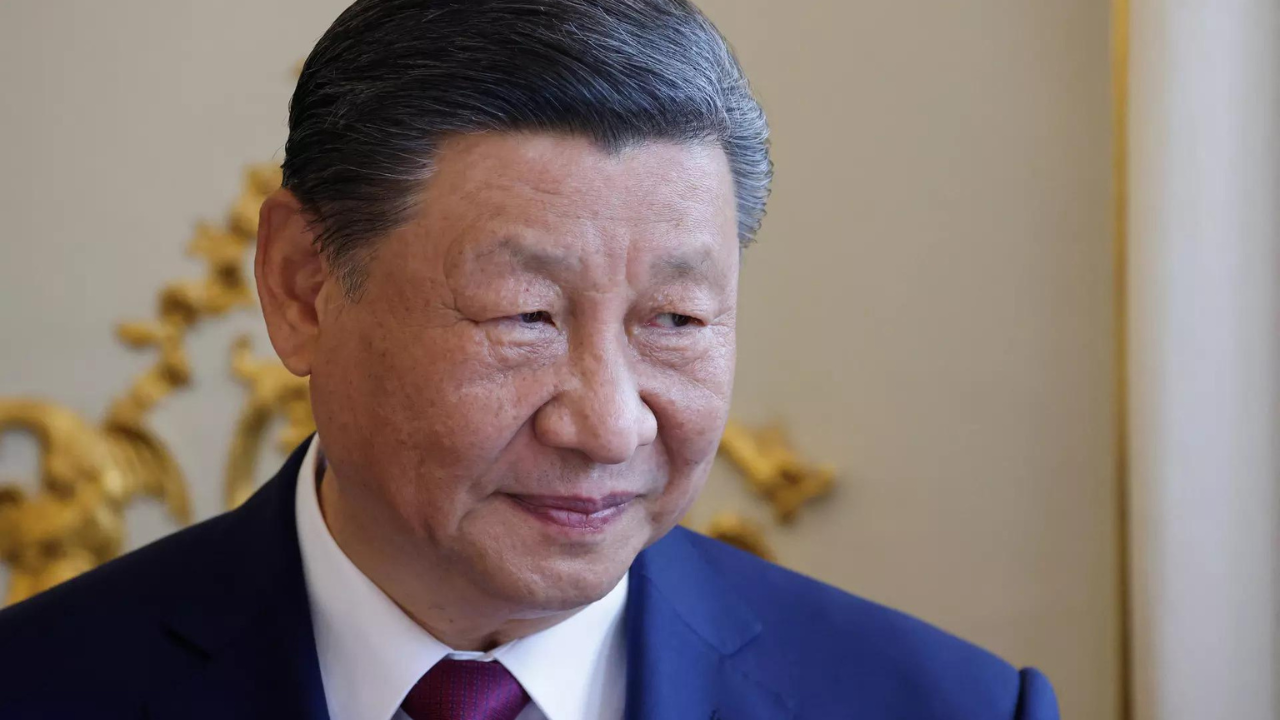PARIS: President Xi Jinping vowed to “never forget” Nato’s deadly bombing of the Chinese embassy in Belgrade, hours before arriving in Serbia on a swing through Europe aimed at dividing Brussels’ support for the US.
“Twenty-five years ago today, Nato flagrantly bombed the Chinese embassy in Yugoslavia, killing three Chinese journalists,” Xi said, in a Tuesday article published in Politika, Serbia’s oldest daily newspaper. “That we should never forget,” he added. “We will never allow such tragic history to repeat itself.”
During the Nato bombing of Yugoslavia in 1999, US missiles killed three Chinese journalists in a strike the White House later called a mistake and blamed on faulty maps. That event sparked widespread anti-US protests across China and cemented Beijing’s mistrust of US-led groups such as the North Atlantic Treaty Organization.
Xi’s visit to Serbia exactly a quarter of a century after the bombing is part of a three-leg tour that includes stops in France and Hungary. The Chinese leader is trying to convince European nations that his nation’s huge economy is too large to turn away from, as Brussels unleashes a salvo of trade probes and aligns with Washington on concerns over China’s over capacity and national security risks.
Adding to the political theater, Xi will be in Europe on the same day Russian President Vladimir Putin is inaugurated into his fifth term, as concern grows in Western Europe over his war in Ukraine.
Xi’s Nato criticism helps explain his government’s rationale for supporting the Kremlin in the wake of its invasion. Chinese officials have referred to the Belgrade bombing multiple times in recent years, as Beijing signaled solidarity with Russia’s position that Nato aggression on its borders necessitated the war.
The US and European leaders have urged Xi to use his relationship with Putin to bring an end to what German Chancellor Olaf Scholz recently branded an “insane” war during a trip to Beijing.
Xi told his French counterpart in Paris on Monday that he opposes the war in Ukraine “being used to place responsibility on a third country, tarnish its image and incite a new Cold War.” President Emmanuel Macron reiterated there cannot be security in Europe without security in Ukraine.
Ties between China and Serbia, which is not an EU member, have strengthened under Xi, even as Beijing’s broader relationship with Europe frays over human-rights issues and trade spats.
In the Politika article, Xi wrote that the friendship between Beijing and Belgrade was “forged with the blood of our compatriots,” but would only “grow tall and sturdy.”
“Twenty-five years ago today, Nato flagrantly bombed the Chinese embassy in Yugoslavia, killing three Chinese journalists,” Xi said, in a Tuesday article published in Politika, Serbia’s oldest daily newspaper. “That we should never forget,” he added. “We will never allow such tragic history to repeat itself.”
During the Nato bombing of Yugoslavia in 1999, US missiles killed three Chinese journalists in a strike the White House later called a mistake and blamed on faulty maps. That event sparked widespread anti-US protests across China and cemented Beijing’s mistrust of US-led groups such as the North Atlantic Treaty Organization.
Xi’s visit to Serbia exactly a quarter of a century after the bombing is part of a three-leg tour that includes stops in France and Hungary. The Chinese leader is trying to convince European nations that his nation’s huge economy is too large to turn away from, as Brussels unleashes a salvo of trade probes and aligns with Washington on concerns over China’s over capacity and national security risks.
Adding to the political theater, Xi will be in Europe on the same day Russian President Vladimir Putin is inaugurated into his fifth term, as concern grows in Western Europe over his war in Ukraine.
Xi’s Nato criticism helps explain his government’s rationale for supporting the Kremlin in the wake of its invasion. Chinese officials have referred to the Belgrade bombing multiple times in recent years, as Beijing signaled solidarity with Russia’s position that Nato aggression on its borders necessitated the war.
The US and European leaders have urged Xi to use his relationship with Putin to bring an end to what German Chancellor Olaf Scholz recently branded an “insane” war during a trip to Beijing.
Xi told his French counterpart in Paris on Monday that he opposes the war in Ukraine “being used to place responsibility on a third country, tarnish its image and incite a new Cold War.” President Emmanuel Macron reiterated there cannot be security in Europe without security in Ukraine.
Ties between China and Serbia, which is not an EU member, have strengthened under Xi, even as Beijing’s broader relationship with Europe frays over human-rights issues and trade spats.
In the Politika article, Xi wrote that the friendship between Beijing and Belgrade was “forged with the blood of our compatriots,” but would only “grow tall and sturdy.”

